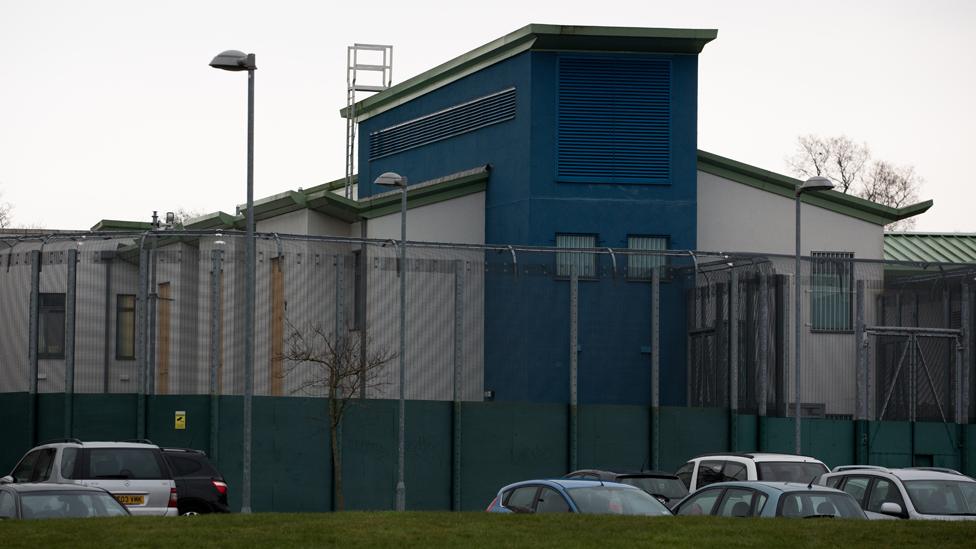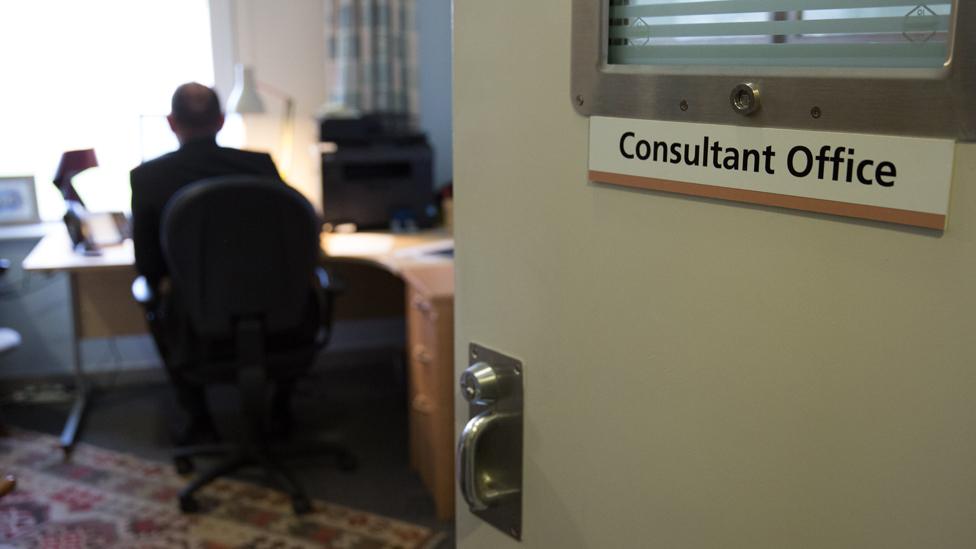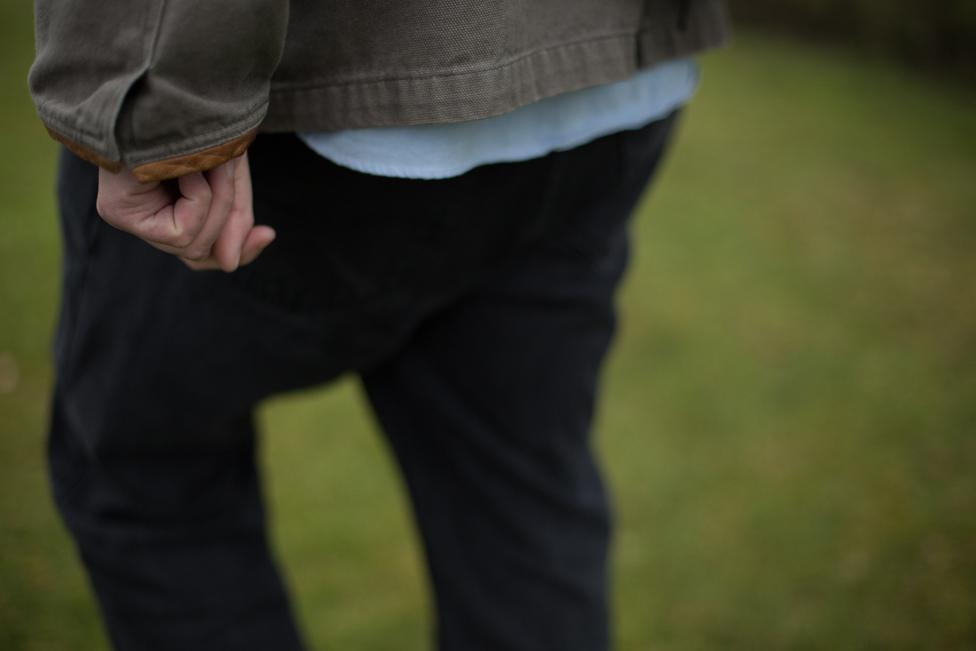When is it safe to release patients from secure hospitals?
- Published
Consultant psychiatrist Dr Tim McInerny explains it's judged whether someone is safe to be released
For those who commit violent crimes while suffering from a mental illness, treatment at a secure hospital often replaces imprisonment. If the patients get better, they can be released into the community under supervision, but that is always a complex decision.
The Ministry of Justice approves each step of the process for releasing a secure hospital patient who has committed a crime. First, there is time spent on the hospital grounds with a member of staff. Then time spent alone, then time in the community, and so on.
Mental health tribunals generally decide on whether someone can be finally discharged. In all this, doctors' advice is crucial.
The Bethlem Royal Hospital, part of the South London and the Maudsley NHS Trust, occupies a huge site in south London - low buildings scattered in nearly 300 acres of gardens, park, and woods. It's very different from its foundation in central London, as the crowded "Bedlam" - Europe's first psychiatric institution, where in past centuries patients were on show for wealthy visitors to gawp at.

The hospital treats in- and out-patients with a range of illnesses. Since 2008, it has also had secure beds for over 100 patients - typically men who've committed serious crimes while mentally ill.
Those include violent offences like murder, or rape, while in the grip of severe illness - often paranoid schizophrenia or psychosis. Many will stay in these units for years, on medication, going through therapy.
The smaller ward, Chaffinch House, is the patients' gateway to the outside world. They're transferred there when their condition stabilises, and doctors consider they might be safe to release. It's a staged process, every step approved by the Ministry of Justice. If all goes well, they can be discharged permanently.
If a forensic patient does reoffend, it's inevitably headline news. Such was the case with Leslie Gadsby in Liverpool, who murdered his mother, having spent two years in a secure unit after killing his father.
At the Bethlem Royal, they've had no such incidents so far. Of 150 patients released since 2008, 20 became ill again and had to go back to hospital - four were involved in an offence, but according to consultant psychiatrist Dr Tim McInerny "nothing more serious than assault". Considering the patients' original crimes, and their illnesses and vulnerabilities, he sees those figures as a success.

On a Thursday morning in Chaffinch Ward, a small conference room fills up with doctors, psychologists, nursing staff, social workers and therapists. This is the weekly ward round, where the team assess the patients' progress. There are cameras. There's also a red panic button and notices on the wall advising how to call for help.
On the table is a pile of chocolate doughnuts - this is a long, gruelling meeting, looking at each case in detail.
McInerny says their approach is cautious and careful - he doesn't worry when releasing patients.

A member of staff takes part in the weekly ward round
"Behaviour is the best way of monitoring what's happening inside their minds," he says. "It's our almost 24-hour monitoring and observation which gives us the best indication of whether they're achieving maturity responsibility and safety."
One of the first patients up for review is a man who due to be discharged after a lengthy stay. He had been moved to a hostel in his home borough, prior to being released. It's part of the staggered approach adopted by the hospital. But the patient had smoked heroin and cocaine with another resident and was seen by staff dancing around with "glazed eyes". Now he's back in the unit.

He is tremendously apologetic. "I'm so sorry Dr Tim - I promise it won't happen again," he says, walking sheepishly through the door.
Drugs and alcohol are triggers for many of the conditions that brought the patients to hospital - they have to avoid them as a condition of release. The patient is told that he has to stay clear of drugs for the next week - and then he can try another night in the hostel.
McInerny suspects the patient doesn't really want to leave. The average stay in secure hospitals is four years, and some patients have been transferred from prison. Leaving the institution can be daunting. But there's tremendous demand for beds in the unit, especially for patients who become ill in prison.
I speak to one patient, "Fred", who has spent four-and-a-half years in the hospital and is preparing for release. He says intensive group therapy helped him "unlock" his emotions - he used to "put them in a box in my head and forget about them. Or I'd use drugs and alcohol to disguise them."
He says he could now "empathise" with people who were sad - which he hadn't been able to do before.

"Fred" is preparing for release
"Fred" says he would manage without the intensive therapy and support available in the hospital. I ask him whether he'd be "safe" for others in the community. "I hope so," he says. "I can't say that I'm going to be a completely normal personality because nobody is normal." Wryly, he adds: "If you find a normal person, let me know."
The doctors say their service has been relatively well funded - especially compared with some other psychiatric services - because of the risk to public safety. However demand is rising, especially from prisons, where charities have warned about the lack of mental health provision, and where suicide and self harm rates are rising, external.
Whenever a patient leaves Chaffinch, their bed is very quickly filled.
Pictures by Ed Ram
Subscribe to the BBC News Magazine's email newsletter to get articles sent to your inbox.